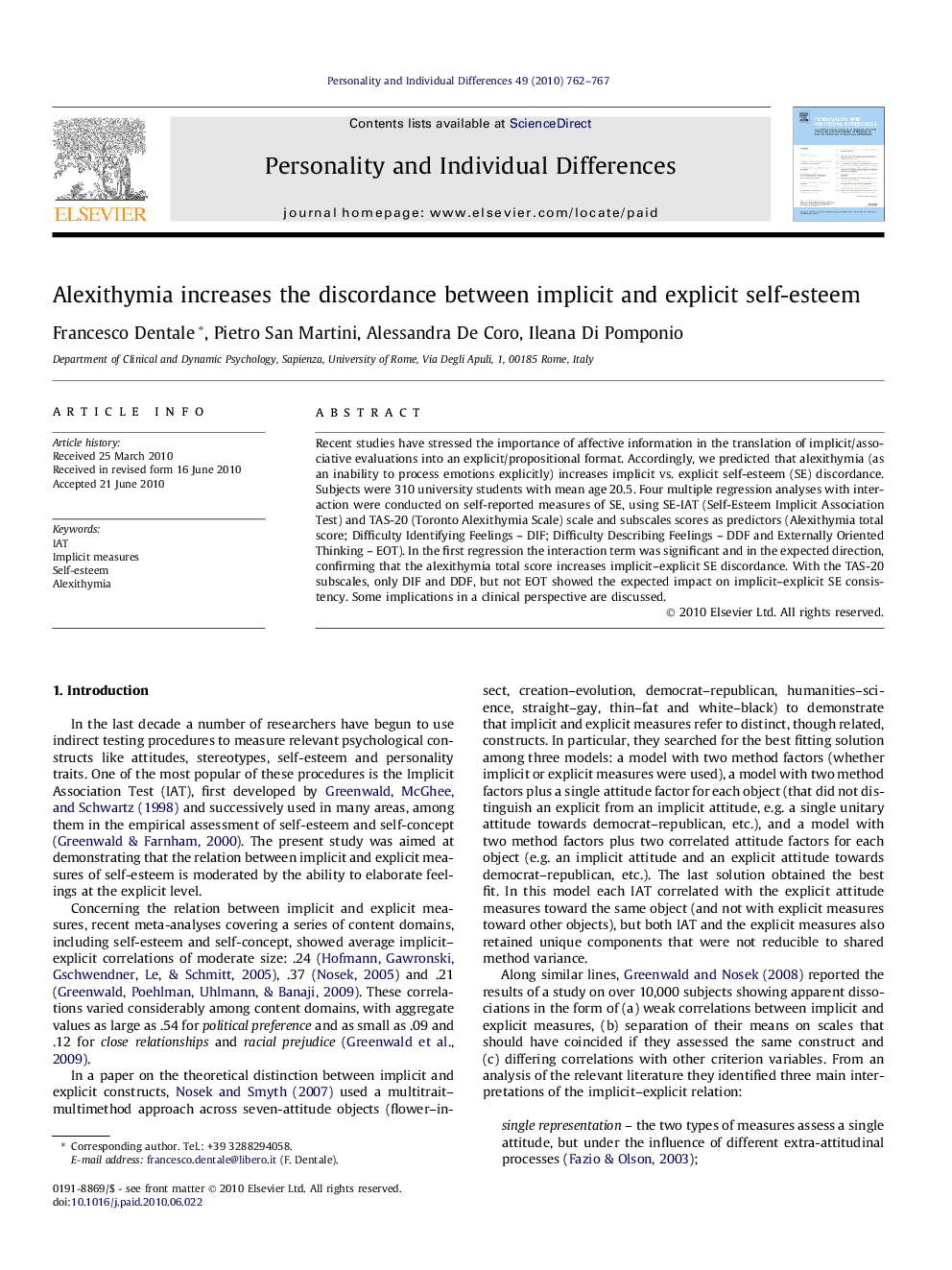| Article ID | Journal | Published Year | Pages | File Type |
|---|---|---|---|---|
| 891900 | Personality and Individual Differences | 2010 | 6 Pages |
Recent studies have stressed the importance of affective information in the translation of implicit/associative evaluations into an explicit/propositional format. Accordingly, we predicted that alexithymia (as an inability to process emotions explicitly) increases implicit vs. explicit self-esteem (SE) discordance. Subjects were 310 university students with mean age 20.5. Four multiple regression analyses with interaction were conducted on self-reported measures of SE, using SE-IAT (Self-Esteem Implicit Association Test) and TAS-20 (Toronto Alexithymia Scale) scale and subscales scores as predictors (Alexithymia total score; Difficulty Identifying Feelings – DIF; Difficulty Describing Feelings – DDF and Externally Oriented Thinking – EOT). In the first regression the interaction term was significant and in the expected direction, confirming that the alexithymia total score increases implicit–explicit SE discordance. With the TAS-20 subscales, only DIF and DDF, but not EOT showed the expected impact on implicit–explicit SE consistency. Some implications in a clinical perspective are discussed.
